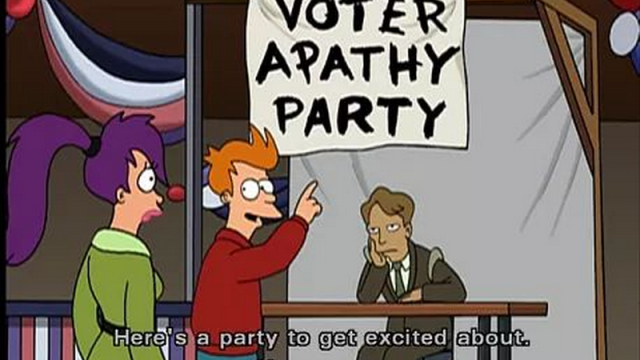In the weeks leading up to any Australian election, many of us will receive a buzz from an unknown caller. They’re called ‘robocalls’ and they generally consist of pre-recorded political messages, urging you to vote for a party or support an organisation’s cause. Unlike other unsolicited calls, political robocalls are exempt from the ACMA’s Do Not Call register. Because they’re a slightly different beast to your standard spam or marketing call, you’ll need to deal with them a little differently.
What are political robocalls?
Robocalls have been around for years but in recent times, they’ve become a more common method for political parties and organisations to reach voters without increasing the people power. In Australia’s 2016 federal election, complaints to the communications watchdog, ACMA, soared after Australians became frustrated with the flood of robocalls and even robotexts.
With elections coming up in both the ACT and Queensland soon, there have been more reports of controversial organisations using robocalls to canvass the voting base.
[related_content first=”1219430″]
In the ACT, the territory’s Chief Minister Andrew Barr confirmed he had received political robocalls from Binary Australia — an anti-transgender and intersex rights interest group — in the lead up to the local election.
Can confirm a burst of robo push-polling in Canberra tonight-authorised by a deeply conservative Melbourne based group called Binary Australia.
I received their robo-call peddling offensive nonsense. Nasty stuff.
Fortunately our city is inclusive and welcoming of LGBTIQ people. https://t.co/TH2ECfaYkD
— Andrew Barr MLA (@ABarrMLA) August 17, 2020
As robocalls of this nature can be incredibly disturbing for some, it’s not an ideal situation to be receiving them without notice.
Unfortunately, under the legislation, political parties, independent members of parliament, candidates for election and interest groups can contact people who’ve registered their number on the Do Not Call list.
Who can make them and why are political calls exempt from the Do Not Call list?
Any business can contact your phone number given it’s been provided to them. There are companies in Australia that specifically deal in the business of collecting data, re-packaging it and then selling it to telemarketing companies or political organisations.
While you might not have remembered signing up for these calls, it’s likely your data has been farmed from a service you’ve signed up for — especially free ones — and brushed over the terms and conditions that allow them to pass on your data to a third-party.
Generally, there’s a relatively simple fix if your number has ended one of these big data lists in Australia — the Do Not Call register.
It’s a pretty simple first step. Head to the Do Not Call site and pop your number on the list and it should be removed from grasps of telemarketers within 30 days.
The Do Not Call is sadly not the magic elixir to your unsolicited call ailment — there are quite a few exemptions.
Under the law, Do Not Call Register Act 2006, ‘designated’ telemarketing calls are actually still allowed to call numbers on this sacred list.
Those that fall under that definition include political parties, independent members of parliament, candidates as well as calls for research and opinion polling.
As ACMA puts it on its site, it’s all to do with having a ‘healthy democracy’.
“As part of a healthy democracy, political parties, independent members of parliament, candidates for election, or interest groups (including trade unions) will use a variety of ways to communicate with you,” ACMA’s site reads.
“During an election or other period, even if your phone number is on the Do Not Call Register, you may receive calls relating to the election, including calls providing information, polling calls, research calls and calls from parties seeking campaign donations.”
While there’s no escaping the political robocall hell elections tend to bring, there are ways to deal with it.
How to deal with an wanted political robocall
So, you’re unable to stop all these unsolicited political messages. There are some simple things you can try out such as hanging up, requesting they don’t call you again or blocking their number.
Failing that, robocalls do need to abide by certain rules. According to the ACMA, the calls will need to:
- identify themselves
- provide current and accurate contact information on request
- enable a phone number return contact to be displayed on your phone
- terminate the call when you ask
They can also only call during specific times.
If you do suspect your robocalling pest is breaking any of these rules, you can lodge a complaint with ACMA. It might not be as handy as just blocking them out altogether but you’ve gotta work with what you’ve got.

[related_content first=”1154653″]
